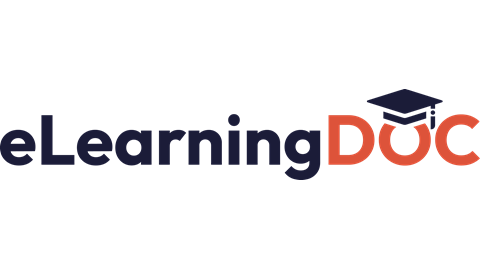
In a recent episode of the Training Impact Podcast, host Jeff Walter sits down with three dynamic leaders from eLearningDOC—Angela Robbins, Toni DiMella, and Diana Brandon—to explore how thoughtful instructional design transforms corporate learning from a compliance function into a competitive advantage. Together, they pull back the curtain on how their firm approaches learning design with a rare blend of empathy, structure, and strategic vision.
Each guest brings a distinct yet complementary perspective to eLearningDOC’s success.
Angela Robbins, the founder, is known for her systems-level view of organizational learning. With a background in both education and corporate performance improvement, she leads with the philosophy that training should build capability, not just deliver content. Her approach centers on designing ecosystems where learning serves measurable business goals.
Toni DiMella, an instructional designer and project lead, is the architect behind many of eLearningDOC’s most impactful programs. Her expertise lies in translating complex client needs into clear, engaging learning experiences. Toni’s mantra—“design with intention”—has become a defining ethos for the team.
Diana Brandon, a learning strategist and content developer, focuses on learner empathy and storytelling. She ensures that every course not only meets the technical requirements but also connects emotionally with learners. Her background in creative media gives the firm’s work a unique narrative depth.
Together, Angela, Toni, and Diana have built eLearningDOC into a trusted partner for organizations that want training programs to achieve lasting behavioral change—not just short-term knowledge transfer.
In the episode, Jeff and the eLearningDOC team unpack what “learning that lasts” really means. Too often, corporate courses are built to check boxes or satisfy compliance needs. eLearningDOC’s process flips that script by grounding every project in purposeful design—a principle that maps closely to the LatitudeLearning Training Program Roadmap.
As Toni explains, “Every client wants something beautiful and engaging—but we start with why. Why are learners here? What do they need to know, do, and feel differently at the end?” That simple reframing sets the tone for everything that follows.
Angela connects this philosophy to the broader evolution of training maturity outlined in the Roadmap. At Stage 1, organizations focus on content delivery; at Stage 2, they begin to formalize learning through assessments and certification. eLearningDOC helps clients move further—toward Stage 3 and beyond—where training develops true skills and drives measurable performance outcomes.
The team emphasizes that design frameworks like ADDIE (Analyze, Design, Develop, Implement, Evaluate) are not bureaucratic checklists—they’re creative guardrails. By following a structured process, eLearningDOC ensures each program has a clear purpose, measurable goals, and space for iteration.
As Diana puts it, “ADDIE gives us the discipline to build learning that’s scalable and data-driven, but it also gives us the freedom to craft experiences that feel personal.”
That balance—between rigor and empathy—is where their programs shine. From leadership development to partner onboarding, eLearningDOC’s learning ecosystems are tailored to the learner’s context and the organization’s strategy.
Throughout the conversation, Angela and Toni share stories of clients who came to eLearningDOC looking for quick fixes and left with full-scale learning transformations. One manufacturer, for instance, started with a simple product training request. After eLearningDOC’s analysis revealed broader performance challenges, the engagement expanded into a role-based curriculum that improved productivity, safety, and employee retention.
Jeff highlights this as a model for program-level thinking—a central theme of the Training Impact Podcast. Instead of reacting to training requests, effective L&D partners step back to understand the system, identify performance gaps, and build learning experiences that close them strategically.
The conversation offers several actionable insights for training leaders:
As Jeff notes during the episode, “What impressed me most about eLearningDOC is that they don’t just build courses—they build learning systems that last.”
Behind the scenes, eLearningDOC’s work reflects a broader shift in corporate training—from isolated learning events to integrated ecosystems that sustain growth. Their projects blend storytelling, data analytics, and human-centered design to create experiences that stay relevant long after launch.
This aligns perfectly with the LatitudeLearning Training Program Roadmap, where advanced programs (Stages 4 and 5) connect individual and organizational performance. By helping clients evolve through these stages, eLearningDOC demonstrates how intentional design can move training from tactical to transformational.
The episode serves as both inspiration and a practical guide for anyone in the learning field—from instructional designers to heads of training programs—seeking to elevate their impact.
👉 Listen to the full episode of the Training Impact Podcast with Angela Robbins, Toni DiMella, and Diana Brandon on the Training Impact Podcast.
👉 Download the case study: Design With Intention: How eLearningDOC Builds Learning That Lasts which dives deeper into learner roles, training stages, and program best practices.
👉 Learn more about eLearningDOC at www.eLearningDOC.com.
Training isn’t just about knowledge transfer—it’s about strategic impact. When you design with intention, learning doesn’t fade. It sticks, scales, and sustains performance.